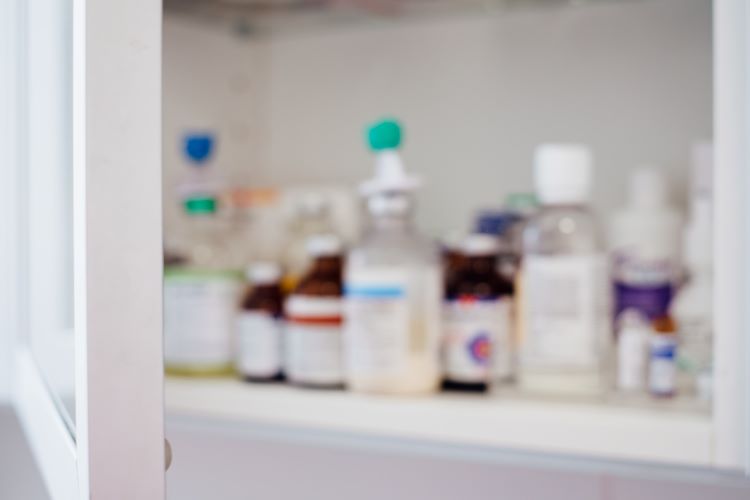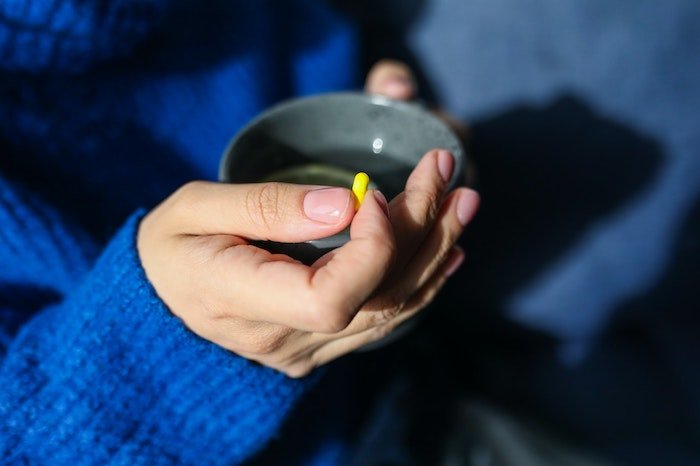Medically-assisted therapy is an addiction treatment that involves taking medications at the same time as undergoing behavioural therapy.
The development of medically-assisted therapy (MET) for addiction has made the process of detoxification and withdrawal more comfortable.
MET therapy can the rates of treatment completion for people in recovery, and lower the number of relapses and overdoses during the withdrawal period.
Many people are hesitant about the thought of detox, due to the possibility of experiencing uncomfortable and often uncomfortable withdrawal symptoms during treatment, particularly in regards to alcohol and opioid addiction recovery.
However, medically-assisted therapy is a substance-use disorder treatment that has been proven to help alleviate withdrawal symptoms, reduce cravings and block the effects of substances.

While medically-assisted therapy can have some success as individual therapy, it is far more effective when combined with behavioural therapy in order to treat the psychological causes behind the addiction. [1]
MAT addiction treatment programmes are available at treatment centres across the UK.
MAT can take away the euphoric effects you were getting from drugs or alcohol, and help you to re-balance your brain chemistry.
MAT is a behavioural therapy that can be used to treat:
Sometimes people fall into substance abuse because they’re self-medicating. With MAT, you can replace illicit drugs with prescription medications that are safe, legal and suitable for you.
With FDA-approved medication, you can manage any obstacles you encounter when you begin withdrawing from a physically-addictive substance.
OK Rehab can give you free advice, no obligation and non-judgemental advice. Many of our helpline team are in recovery and understand your struggle with addiction.
To find out more about medically-assisted therapy for addiction, call our 24/7, confidential hotline on 0800 326 5559.
Which addictions can medically-assisted therapy be used to treat?
The most common disorders that can be effectively treated with medically assisted therapy include:
- Alcohol addiction
- Opioid addiction
- Nicotine addiction
Medication is primarily used in the treatment of substance use disorders, with more research required to understand whether it could also be used to treat behavioural addictions.
1. Alcohol addiction
Alcohol addiction can have devastating effects on every aspect of a person’s life, from their physical health to their mental wellbeing. It can be extremely difficult to find the strength to stop drinking, as the withdrawal process can be dangerous and even life-threatening.
In many cases, medically-assisted therapy can allow patients to detox from alcohol in a slow and safe manner by rebalancing brain chemicals and acting as an active deterrent.
Some medications can cause vomiting and other unpleasant side effects when alcohol is ingested, and this method has been proven to be an effective form of treatment.
2. Opioid and heroin addiction

Many people become addicted to opioid-based substances after receiving a prescription for a legitimate medical need, such as chronic long-term pain management or as a short-term painkiller after an operation or accident.
The body can very quickly build up a tolerance to these substances, requiring a higher and more frequent dosage in order to experience the same effects. As a result, without careful medical monitoring, the patient may develop a dependency.
Opioid addiction is notoriously difficult to recover from, with severe and intense side effects developing as the body goes into withdrawal.
Thankfully, a range of medications is available with opioid treatment programmes to help make the process more comfortable and reduce the chances of relapse.
OK Rehab can give you free advice, no obligation and non-judgemental advice. Many of our helpline team are in recovery and understand your struggle with addiction.
To find out more about medically-assisted therapy for addiction, call our 24/7, confidential hotline on 0800 326 5559.
Which medications are used in medically-assisted therapy?
There are a large range of medications that have been approved for use in medically-assisted therapy, each with their own benefits and uses.
Some have the ability to reduce the pleasurable effects of certain substances rendering them less effective, while others can mimic the effects of addictive drugs allowing the patient to switch to a safer and less addictive substance.
Each of the medications described below has been extensively studied regarding the role they can play in addiction recovery.
While some have the potential to be addictive themselves, the risk is greatly reduced when the dosage is prescribed by a medical professional and closely monitored throughout the treatment process. [3]
What are MAT Addiction Programmes?
A person holding tea and medication during medically-assisted therapy for addiction
Medications used for alcohol addiction
Acamprosate
Acamprosate is commonly used in the treatment of alcohol addiction as it has the ability to rebalance the levels of chemicals in the brain that may be disrupted by an excessive amount of alcohol.
Disulfiram
Disulfiram can make alcohol seem less appealing by causing unpleasant side effects when it is consumed, while also reducing cravings by controlling the amount of dopamine released by the brain.
OK Rehab can give you free advice, no obligation and non-judgemental advice. Many of our helpline team are in recovery and understand your struggle with addiction.
To find out more about medically-assisted therapy for addiction, call our 24/7, confidential hotline on 0800 326 5559.
Medications used for opioid and heroin addiction

Methadone
Methadone is commonly prescribed to treat moderate to severe pain and is effective at alleviating many of the more uncomfortable withdrawal symptoms during a heroin or opioid detox.
However, methadone can be highly addictive and care must be taken to ensure the individual does not develop a dependency on this medication.
Naltrexone
This medication can help to make heroin and other opioids seem less appealing, as it reduces their effects by blocking opioid receptors in the brain. Naltrexone is also commonly used to treat heroin overdoses.
Buprenorphine
A less addictive substance that can mimic the effects of opioids, buprenorphine is prescribed as an effective substitute for heroin during the detoxification process and can help to reduce cravings during the tapering-off process.
Medications used for nicotine addiction

Clonidine
Clonidine can help the process of nicotine withdrawal feel more comfortable by actively reducing the individual’s heart rate and lowering their blood pressure, helping them to feel calmer and more relaxed.
Naltrexone
With a similar effect on both nicotine and opioids, naltrexone blocks opioid receptors in the brain which can help to reduce cravings and prevent relapse.
Varenicline
By producing a similar sensation to nicotine but with less addictive effects, this medication can reduce cravings and withdrawal symptoms as the individual slowly tapers off the dosage.
OK Rehab can give you free advice, no obligation and non-judgemental advice. Many of our helpline team are in recovery and understand your struggle with addiction.
To find out more about medically-assisted therapy for addiction, call our 24/7, confidential hotline on 0800 326 5559.
What are the benefits of medically-assisted therapy?

While medically-assisted therapy has been proven to be effective at increasing the chances of long-term recovery from a number of addictive substances, this form of treatment provides benefits that extend far beyond simply recovering from an addiction.
Common benefits of medically-assisted therapy include:
1. Reduces criminal activity
As these medications are prescribed by medical professionals and commonly dispensed at pharmacies or within local rehabilitation centres, there is no longer a need to commit criminal activities such as stealing or engaging in illegal prostitution as a means to fund the addiction.
The medications are also manufactured in clean, sterile environments with the dosage of each treatment accurately measured. This reduces the risk of accidental overdose and ensures that patients know exactly what they are ingesting.
2. Helps patients to stay in treatment

The withdrawal period can be the most difficult aspect of addiction recovery, with intense cravings and uncomfortable side effects often persisting for a number of weeks or even months.
Addiction is a relapsing disorder, so relapse will always be something you will need to fight against:
- Many patients are unable to sustain their treatment goals, and a number will statistically relapse before the end of the programme or shortly afterwards
- The danger of relapsing during or after treatment revolves around the fact that while the body can quickly build up a tolerance to a specific substance requiring a higher and more frequent dosage in order to experience the same effects, this tolerance can be lost after a short period of abstinence
- In the event of a relapse, the patient may attempt to ingest a large amount of the substance as they were previously able to do so, and as a result, they are at higher risk of overdose
Utilising specific medications during this process can help patients to continue treatment and reduce the chances of relapse, particularly when they are able to switch to a substitute that provides similar effects to the addictive substance. [4]
OK Rehab can give you free advice, no obligation and non-judgemental advice. Many of our helpline team are in recovery and understand your struggle with addiction.
To find out more about medically-assisted therapy for addiction, call our 24/7, confidential hotline on 0800 326 5559.
3. Reduces the risk of contracting a blood-borne disease

How does medically-assisted therapy reduce the risk of contracting a blood-borne disease?
People dealing with opioid addiction are more likely than the general population to contract a blood-borne disease such as HIV or hepatitis due to the common practice of injecting the substances directly into the veins and potentially sharing needles with other people.
Does medically-assisted therapy for addiction require self-injection?
There are no approved medications that require injection by the patient, and therefore this risk is greatly reduced.
Are there any side effects of medically-assisted therapy for addiction?
Certain medications can induce unpleasant side effects if they are not ingested as directed.
What are the other advantages of medically-assisted therapy for addiction?
By treating the physical element of addiction at the same time as the mental effects, you can achieve the best chances of a comfortable detox and recovery.
Medically-assisted therapy FAQs

How long does medically-assisted therapy for addiction last?
There’s no set-timescale for MAT, and some people continue indefinitely.
Can I get MAT at alcohol rehab?
Can you get MAT funded by NHS?
The NHS provides funding for rehab under strict criteria, but getting MAT depends where you go to rehab.
Check with your chosen rehab when you begin the admissions process to see if it will cover MET.
Can I receive multiple different treatments alongside medically-assisted therapy?
Yes, most rehabs will provide a range of different therapies and treatments. You can also get these as an outpatient, depending on what’s available in your area.
OK Rehab can give you free advice, no obligation and non-judgemental advice. Many of our helpline team are in recovery and understand your struggle with addiction.
To find out more about medically-assisted therapy for addiction, call our 24/7, confidential hotline on 0800 326 5559.
How can I access medically-assisted therapy?

The majority of these medications must be prescribed for use by a medical professional, and under UK law it is illegal to supply or possess many of them without a prescription.
A number of rehabilitation centres across the country include medically-assisted therapy in their treatment programmes, with professionals on hand 24/7 to assess, prescribe and monitor your reaction to the medications.
You’ll be provided with the appropriate behavioural therapy in order to increase the effectiveness and longevity of this method of treatment.
Your doctor may also be able to prescribe certain medications, however many do not have the resources or experience to conduct a thorough assessment and therefore may refer you to a rehabilitation centre as an inpatient or outpatient depending on the severity of your addiction.
You can take action today and take that first step towards your recovery goal by giving our friendly and experienced team at OK Rehab a call to discuss your treatment options.
We have the experience and resources required to source the most effective medically assisted therapy programmes in the country that suit both your requirements and your budget.
OK Rehab can give you free advice, no obligation and non-judgemental advice. Many of our helpline team are in recovery and understand your struggle with addiction.
To find out more about medically-assisted therapy for addiction, call our 24/7, confidential hotline on 0800 326 5559.









